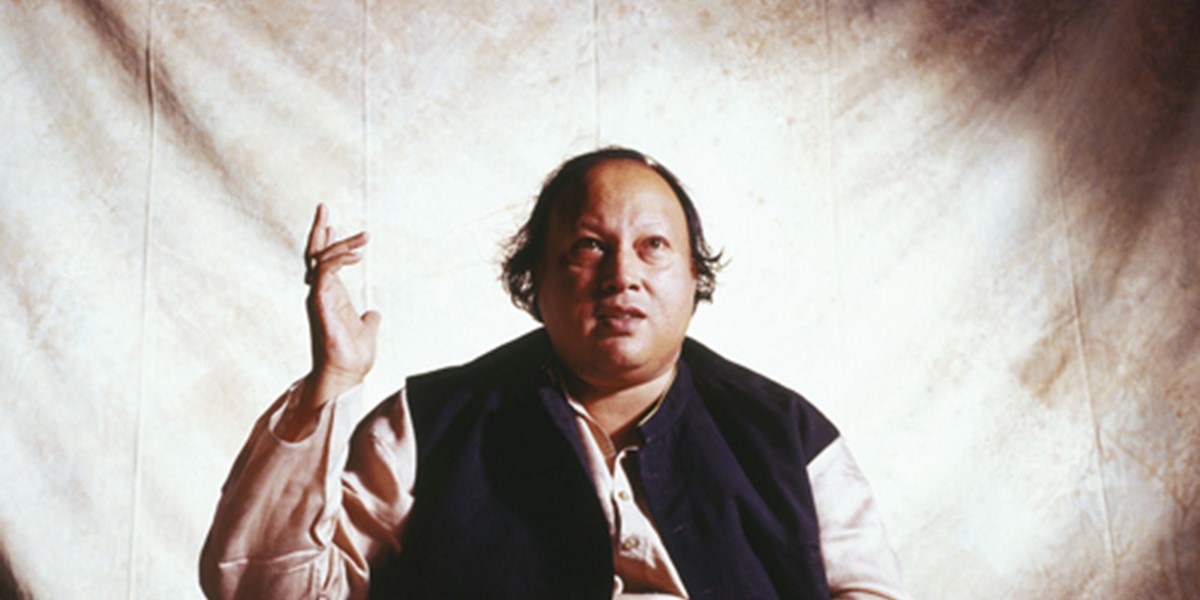Tuesday, February 20, 2018
Nusrat Fateh Ali Khan: A Beginner’s Guide
Jameela Siddiqi introduces Nusrat Fateh Ali Khan, the Pakistani Pavarotti, populariser of the qawwali tradition

Everything about Pakistan’s Nusrat Fateh Ali Khan (1948-1997) was larger than life, not least, his imposing physical stature and his stunning musicality. He was, almost single-handedly, responsible for popularising qawwali – the music of Indian and Pakistani Sufis (Islamic mystics) – which had been going strong since the late 1300s but was virtually unknown outside the Indian sub-continent. The act of performing and listening to qawwali is a specific religious ritual of the Sufis and as such was traditionally only performed at the shrines of Sufi saints and past masters.
It was Nusrat, descended from a long line of distinguished qawwals (performers of qawwali) who had been in the business for over 600 years, who brought it to the concert halls of Europe and the USA with many Western musicians realising its potential for modern collaborations. Nusrat embarked on several of these, from his work with producer Michael Brook (Mustt Mustt), to contributions for film soundtracks, including Dead Man Walking and Bandit Queen, as well as music for a Coca-Cola commercial. Nusrat himself remained adamant that the message of qawwali was the same, whether it was performed in the traditional context or adapted to suit more modern tastes. “If even just one out of a thousand listeners feels spiritually uplifted, then my job, as one who tries to reduce the distance between the Creator and the created, is done,” he said in an interview shortly before his untimely death in 1997. His death coincided with the 50th anniversary of the Partition of India and was mourned both in India and Pakistan.
Qawwali, although categorised as ‘semi-classical North Indian music,’ has a distinct sound of its own based on a chorus of male voices and entrancing rhythms marked by hand-clapping. But percussion is only part of the story. Qawwali’s main spiritual content lies in its classical melodies enhanced by mystical Persian, Hindi and Urdu/Punjabi verses of the great Sufi poets of the past. It is interesting to note that the majority of Nusrat’s fans, although not from within these linguistic traditions, nevertheless admit to being spiritually moved by his songs.
Qawwals are not so much musicians as part of an ancient institution which is strictly a family business, with musical and poetic knowledge handed down from father to son. But Nusrat was probably the first qawwal in the world to stand aside as a musician in his own right, doing everything from classical qawwali to Bollywood soundtracks and works of fusion with Western musicians.

